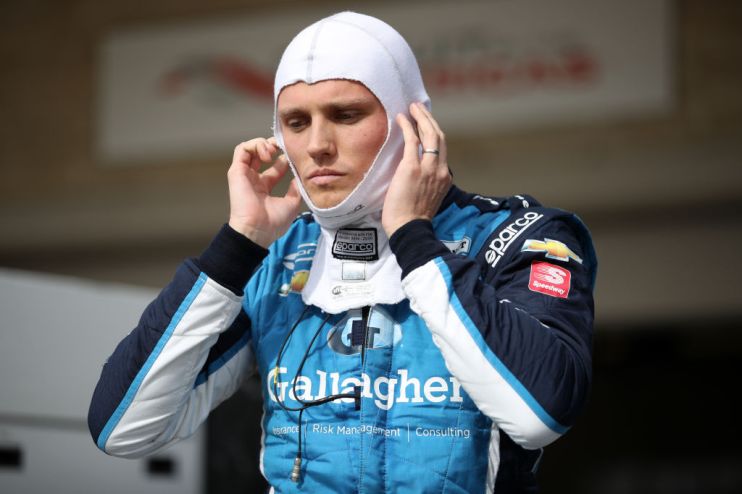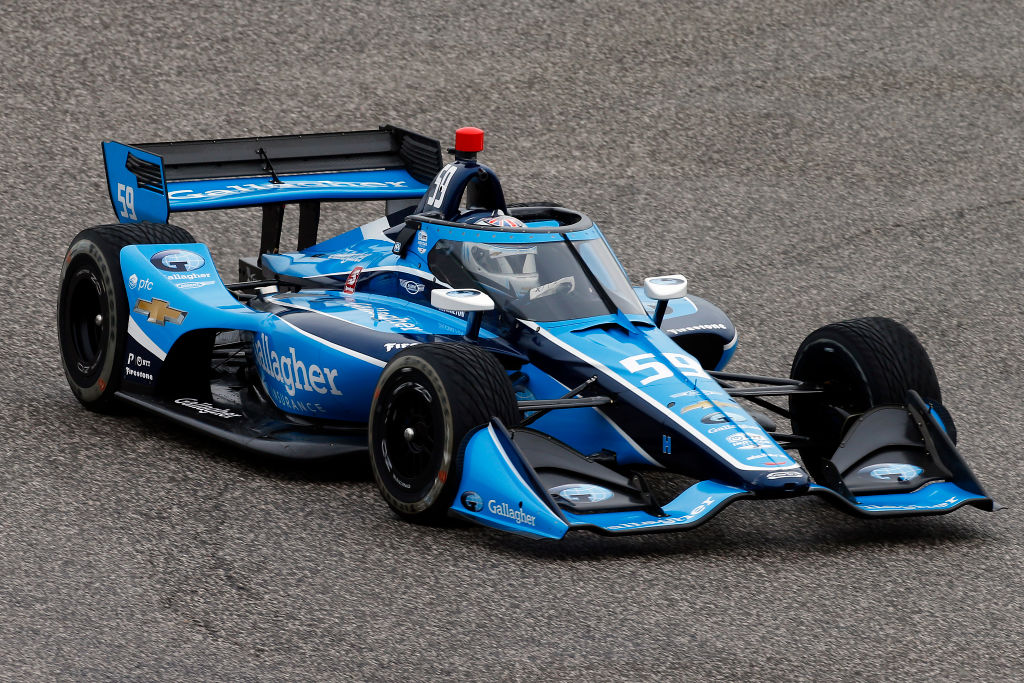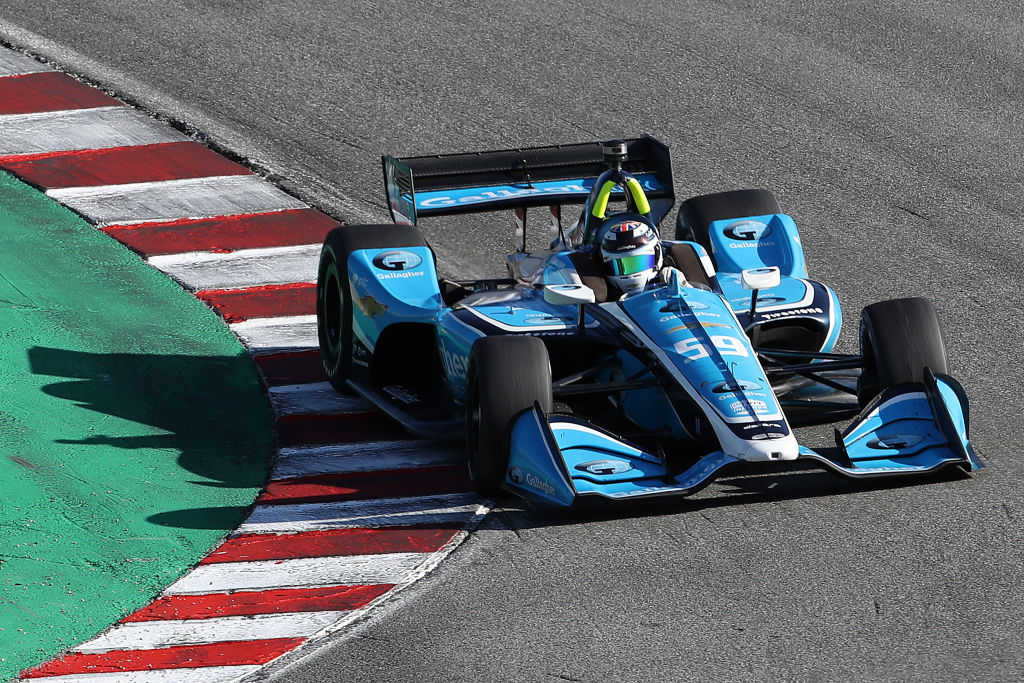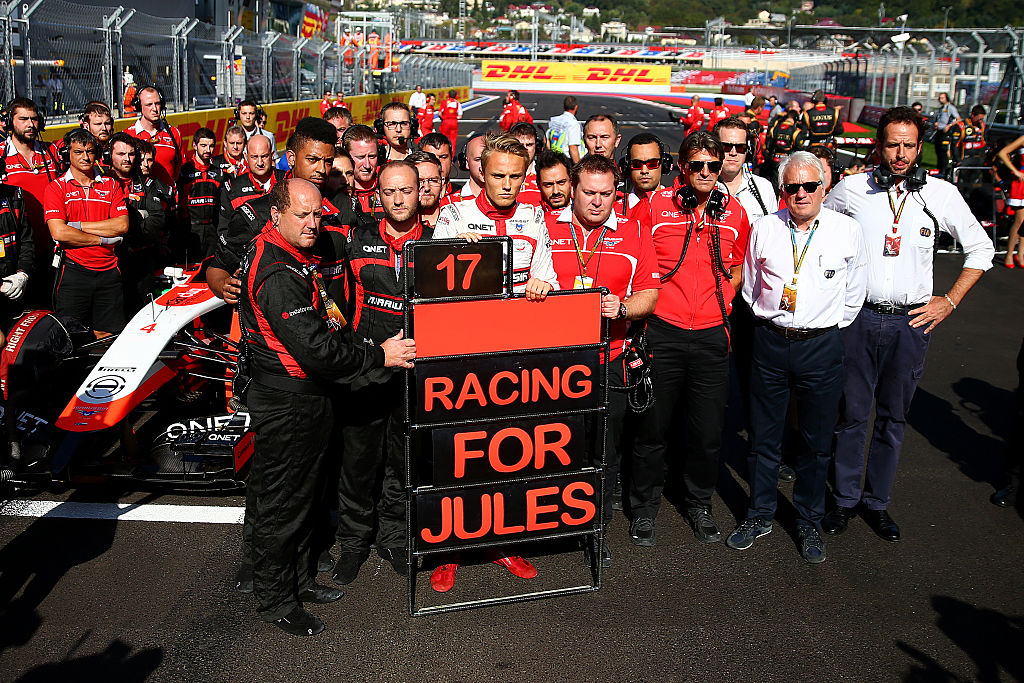Max Chilton on his Indy500 hopes, the dangers of IndyCar and a difficult end to his Formula One career

Max Chilton’s motor racing career has been filled with highs and lows but, having found a home in North America’s IndyCar series, there is now a need to start delivering results.
The 28-year-old bowed out of Formula One in 2014 and has since set about establishing himself as the fastest Briton in America. This weekend he will embark on his fifth season in IndyCar and he is not only targeting stronger results but a win at the prestigious Indy500, which he came so close to in 2017.
“We nearly won the biggest race in the world a couple of years ago,” Chilton tells City A.M. “I was a lap down after 30 laps to [Fernando] Alonso; 40 odd laps later I was leading the thing. I went on to lead it for 54 laps – more than anyone else.”
He ultimately finished the 500-mile race in fourth, while Alonso failed to finish at all. But that is the nature of one of the most challenging races on the planet.
“Everyone has a chance because that race comes down to strategy and keeping out of trouble,” he says. “It’s going from London to Land’s End and back in two-and-a-half hours.”

While the Indy500 is the standout race, there are another 16 on the calendar and, after a disappointing 2019, Chilton and his team, Carlin, need of better results or risk dropping out.
“Our target as a team is to get a podium,” the Surrey-born racer says. “You can’t be in racing if you aren’t getting results.”
Safety concerns
It will be impossible for Chilton to win the championship, however, as he refuses to compete on the oval circuits – bar the Indy500 – for safety reasons. It means he will miss four races and has caused a stir in America.
“It’s a life decision. The road and street courses are what I was brought up on and love, but I’m going to do the Indy500 because it’s the biggest race in the world and people treat it with respect,” he says.
“You get two weeks practice, so it takes certain elements of risk out of it. The oval racing I’ve stopped, you get two days to practice, qualify and race, and people go all out for a couple of days and that’s where the accidents tend to happen.”

This season’s implementation of a so-called Aeroscreen to protect the car’s cockpit, which was designed by Red Bull as an alternative to F1’s Halo, has not changed Chilton’s mind.
“I don’t mind people judging me,” he says. “You have keyboard warriors on Twitter. But if you say ‘get in that and do those speeds with people not treating others with respect’, they would probably go with my decision.”
Jules Bianchi’s death
Although he says it isn’t a factor, his concerns are more understandable given that his ex-F1 team-mate Jules Bianchi died as a result of a freak accident at the 2014 Japanese Grand Prix. Their Marussia team went bust and Chilton’s final F1 race came at the following grand prix in Russia.
“Definitely not the way I wanted to end my career in Formula One,” he said. “Russia was really difficult, obviously we chose not to run Jules’s car. It was the weirdest weekend of my motorsport career. It was a shock to everyone and opened my eyes. It was like going back to the killer years in F1. It’s something I hope never to have to go through again.”

Chilton has started a couple of businesses, including a car storage facility and property management company, with one eye on his post-racing career. However, he still intends to race for the foreseeable future.
While he is happy in IndyCar, he would “love to do Le Mans again” and “wouldn’t say no” to Formula E. The door is also very much open for a return to F1 – just not to “a back field car”.
Exciting time for F1
However, he believes it is a “really exciting” time for the series, which is also due to begin this weekend, as Lewis Hamilton goes in search of a record-equalling seventh world title.
“What I secretly hope is Hamilton matches [Michael] Schumacher’s seven titles, Mercedes calls it quits and then Hamilton has to go and win with another team [to break the record],” he says.
While a return to what Chilton still calls “the pinnacle of motorsport” appears unlikely, he has found himself at home in the “more competitive” series across the Atlantic, even if it does mean a lot of flying to and from his Surrey base.
“F1 gave me the best years of my career; for the experiences, the places, the people,” he says. “But am I enjoying what I’m doing now more? Yes.”